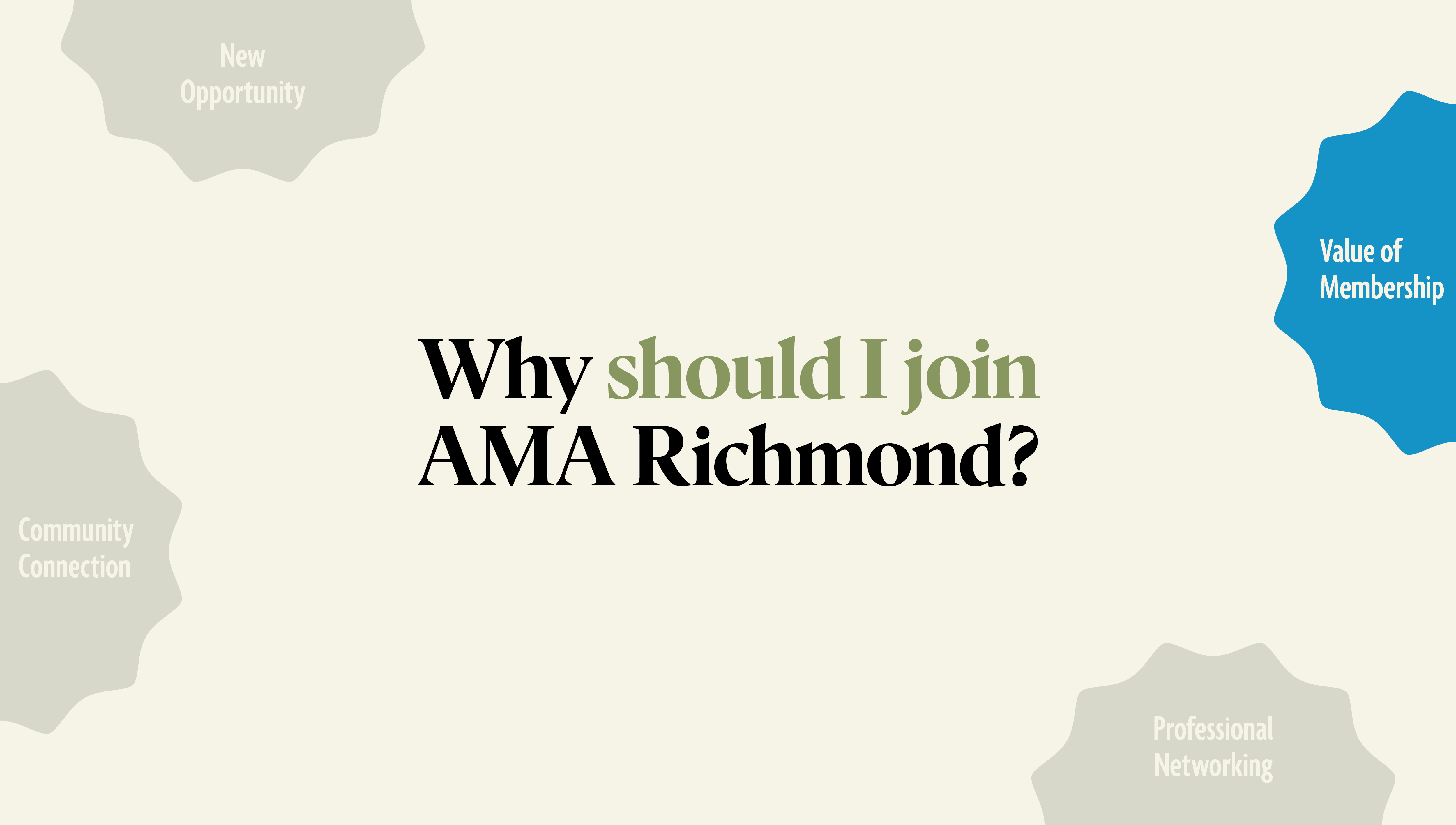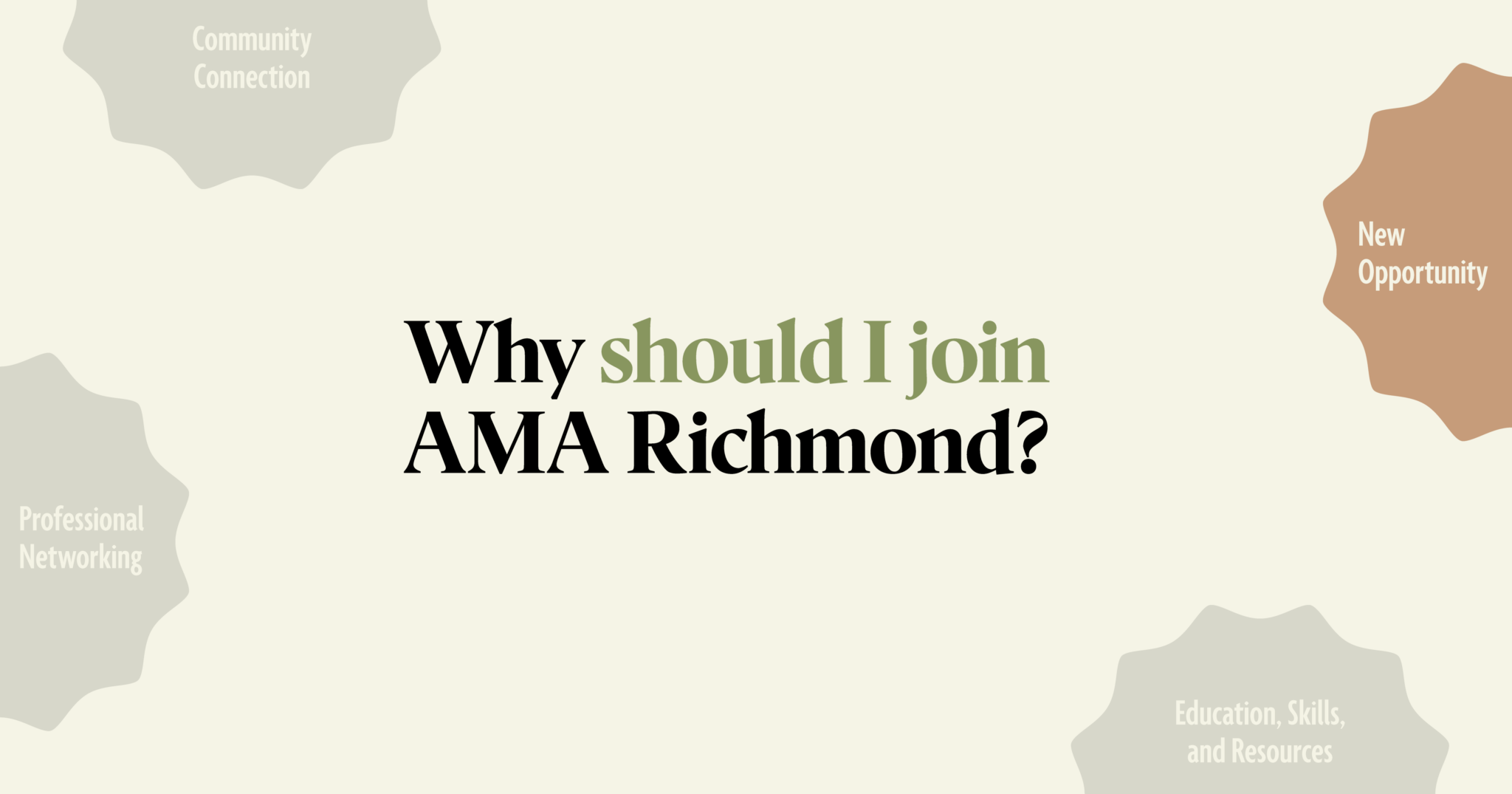I started working at a 60-division, Fortune 500 conglomerate when I was 17. I learned as much as I could about business from real life, on-the-job training. For 8-1/2 years, I learned human resources & executive compensation, corporate accounting & finance, leasing, global trademarks, mergers & acquisitions and investor & stockholder relations. It wasn’t until the end of that time that I was introduced to corporate communications, public relations and advertising.
From there, I worked at a string of agencies from a 12-person ad agency to an in-house direct marketing firm, to a 100-person direct response shop, to a 350+ person ad agency and then another small marketing firm. In the middle of that, I had a short stint at a start-up marketing agency which then led me to opening my own social and digital boutique agency (in early 2009 of all times) and I ran that for 2-1/2 years before launching into non-profits. Now I’m back to having my own business, a brand marketing consultancy focusing solely on brand strategy, innovation and business expansion.
With the rapidly increasing speed of technology and consumer adoption habits, marketing will evolve and marketers will continually have to stay ahead of the game. The pace will move even faster with no let up in sight.
As I look back, however, I’ve learned a few lessons as a marketer that perhaps will be helpful to you. Feel free to share yours in the comments.
1. Yes, advertising and marketing are different.
Some ad agencies are really geared toward traditional or digital advertising no matter how much they say they believe in a more integrated marketing approach. I always felt a bit on the edge of ad agencies because I thought differently and more holistically about solving clients’ brand or product challenges. The answer was not always a TV campaign or whatever cool thing the creative teams had discovered which is now digital this or social that.
There is something about having a truer and more innovative business and marketing mindset that can help a client move forward fast. The same goes for whether you’re the business owner or you work inside a corporation. Marketers seem more naturally to be entrepreneurial creative problem solvers.
2. Joining local AMA chapter board was best thing I ever did.
It wasn’t until I was asked to join the board of our local American Marketing Association chapter that I saw the diversity of marketing agencies and depth of talent that existed right here in Richmond, Virginia. I joined the board in 2009, later accepted the three-year “Presidents” commitment path and am rolling off the board this month (bittersweet for sure).
During that time, I met so many marketing comrades that it was well worth the volunteer effort. I saw them in times of struggle, career transition and success. And we learned together, from each other and helped each other. We grew the chapter together and made it more sustainable every year, which was both a lot of work and fun. I wish all marketers could have this experience.
3. There are a lot of marketers but few really good ones.
When I joined a retail business association, I was invited to a new member mentoring session. Each attendee could ask one question and mine was along the lines of “Why do you need me if you already have several members who are marketers?” Ken Wayland, the chair of the board and an agency head himself, wisely told me that there are a lot of people who call themselves marketers but few really good ones. I took that as great advice and a way to know (in my heart, at least) that I had a definite purpose amongst my supposed competition.
There are a lot of people out there who call themselves marketers or say they’re “in marketing.” Sometimes they are in sales or provide a marketing service such as video production, graphic design, website development, signage, etc. The lesson is don’t just be a marketer, strive to be the best of the best.
4. Marketing’s value is in the eye of the beholder.
Marketing is a profession in which those of us who are practitioners often give too many things away and, therefore, as an industry, the work loses its value. Much of the work we do is in our heads: our ideas, thoughts, strategies, connections, ability to synthesize and plan. It’s often difficult for clients to value what it is we have painstakingly taken so much of our time to learn to do.
I attended a VCU Brandcenter Friday Forum in which the guest speaker, Jim Ferguson, told the audience that we should never give away our ideas for free. He said make a transaction happen, even if you’re helping friends. Charge them a dollar. “We give away too much,” he said. Agreed. Heck, people pay $4 for a Starbucks latte every day of the week and then expect marketing practitioners to give away their advice, their craft, for free. And we are our own worst enemy, sometimes, by not charging enough because we genuinely care about helping others. After years of experience, much of what we do becomes easier and faster for us to do which means it’s even more valuable, not less.
I often equate our marketing craft to Fred Couple’s golf swing. He makes those 300-yard drives look so easy, natural and comfortable – as if anyone can swing like him. Lots of people call themselves golfers as a result. Yet the golfing industry pays Freddie handsomely for his accuracy and consistency; his nice guy image doesn’t hurt either. Those of us who are really good at marketing make it look so easy, and therefore everyone says they’re a marketer. But we need to make sure experienced, value-delivering marketers are well compensated by educating people on what is required for us to be great marketers. For sure, it’s not as easy as it looks and there’s not a day that goes by that we’re not practicing.
5. Strategic business planning and agency account planning are not the same.
Eric Martin of 80amps generously granted me a meeting last week. One of the challenges of agencies, he said, was that they confuse strategic planning with account planning. And he’s right about that. Right or wrong, a fault of agencies is that they supply the services that give them more or better advertising work, and often stop there. Account planning has its place and value to both client and agency, but it is not the same thing as strategic business planning.
Strategic business planning separates marketing from advertising. To do a good job of marketing, and any subsequent advertising, one must look at (or develop) the overall business and product plans. The last thing you want to do is recommend a marketing or advertising plan that goes against the grain or doesn’t fully mesh with where the business is headed or needs to be down the road. I’m not saying that ad agencies or even marketers do this but there’s a myopic tendency for all of us to not look up and see the top of the trees. We need to do both.
6. The ability to truly synthesize big data is rare.
Making sense out of research and big data is a rare talent. There are Fortune 500 companies with tons of big data and market research and even they struggle with the ability to focus on what it means and how to use it. Synthesizing data and making sense of it in terms of drawing out possible concepts, making data connections, and proving out “what if” scenarios is a full time, collaborative process for which many companies aren’t willing to dedicate the resources or hire the right consultant to help them. The tendency is to get to the answers faster, to find the first consumer insight they can find, build a campaign and go.
While I like fast action as much or more than the next person, the part that often doesn’t work is that they don’t continue working to see what else is there, to further make connections, to marry data with future trends or other insights that can expand or take initial findings to a whole new level. This is hard, grinding and complex futurist work for which not many marketers are adept or have the patience or drive. But this is the work I love and what separates me from others because so many just won’t bother with it. “It’s too hard,” I hear them say.
But it’s how you find the diamonds of consumer truths, the novel ideas or the unique and differentiating campaigns. This is truly the best work as it’s a lot like being an investigator and finding money being left on the table. To me, this is sustainability marketing.
7. Questions are more valuable than answers.
This is nothing new for you if you hold a strategic planning role, but it is human nature to want to solve a problem quickly and move on. Or to look at a situation and take it for face value without diving deeper and exploring more to find out what is going on underneath the surface layers. The truth is, there are few people who are really interested and unafraid of going down the rabbit hole.
Some organizations look good on the surface but when they can no longer move forward or are stuck in some way in terms of growth, they don’t want to really tell you what’s going on underneath. Or maybe they don’t know. Companies often just want to look better with a new logo or a rebranding project and that’s an easy temptation for marketers. It’s often necessary to dig deeper with the right questions, and keep asking them until you can determine real answers.
8. Nothing is more valuable than experience, collaboration and action.
The only way in which you can figure out the right questions and then guide a company through to the best solutions is through depth and breadth of experience, your ability to collaborate and to get things done. There’s no shortcutting. Developing yourself as an IDEO t-shaped versus an i-shaped individual is always going to be more valuable to both you and your clients or the organization in which you work.
For example, my experience includes working with several financial service firms in varying capacities and teams. But I also have experience in a number of other sectors such as automotive, manufacturing, healthcare, non-profit and SMBs (small businesses) and that give me perspective and a different vantage point when I’m working with financial service firms. And my work with highly collaborative non-profit associations helps me work better on the for-profit side and vice versa. The more varied experience you can get, the better.
What real world experience teaches you is not only how to strategize but how to execute a concept or plan. It’s simply invaluable beyond anything you read in a textbook.
9. There’s great value in sharing what you know.
I’ve learned to share my knowledge because the act of sharing is what this economy is made up of today. Thankfully, it is more widely acceptable due to the ease of sharing with online tools and apps, the popularity of B2B content and inbound marketing, as well as the popularity of crowd sourcing or crowd funding. Yet the benefits of sharing what you know is not new either, and certainly not in the world of marketing and advertising.
Back in the late 60s and early 70s, father of advertising David Ogilvy shared his best copywriting and advertising tips in full page, long-copy newspaper ads. It was one of the best ways in which Ogilvy & Mather grew because they established their expert status and prospective companies would call them for advertising and copywriting advice and implementation. Today we fully utilize blogs, whitepapers, tweets, Facebook posts, photos on Instagram or Pinterest and a number of content sharing services like Hootsuite or Scoop.it.
There’s always been tremendous value in sharing because you help others and help yourself in the process.
These are just a few of the lessons I’ve learned as a marketer. I’d probably have to write a book to cover the rest and perhaps will someday.
What’s the most important lesson you’ve learned?




